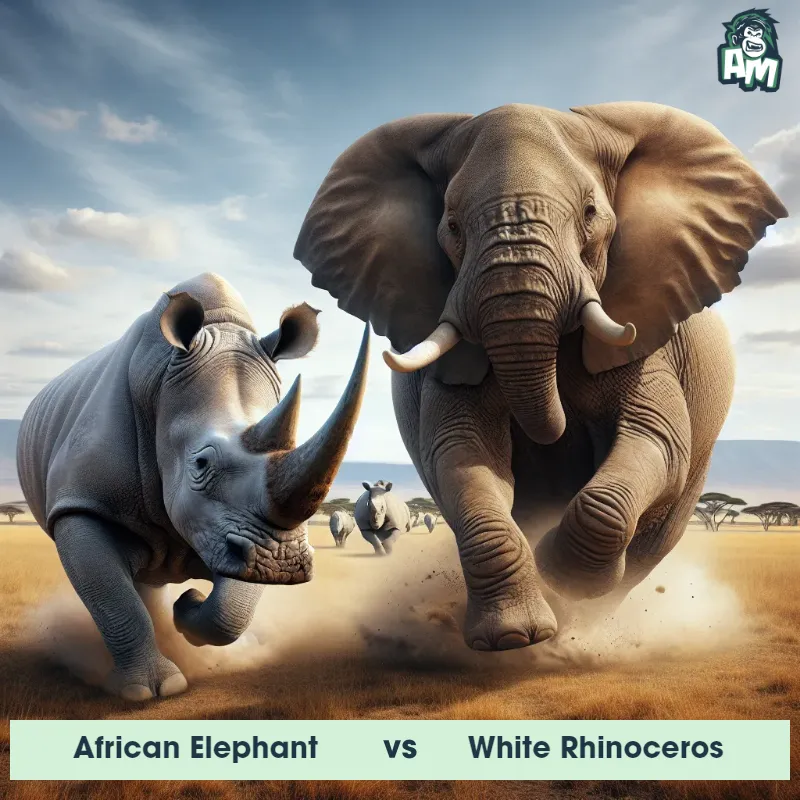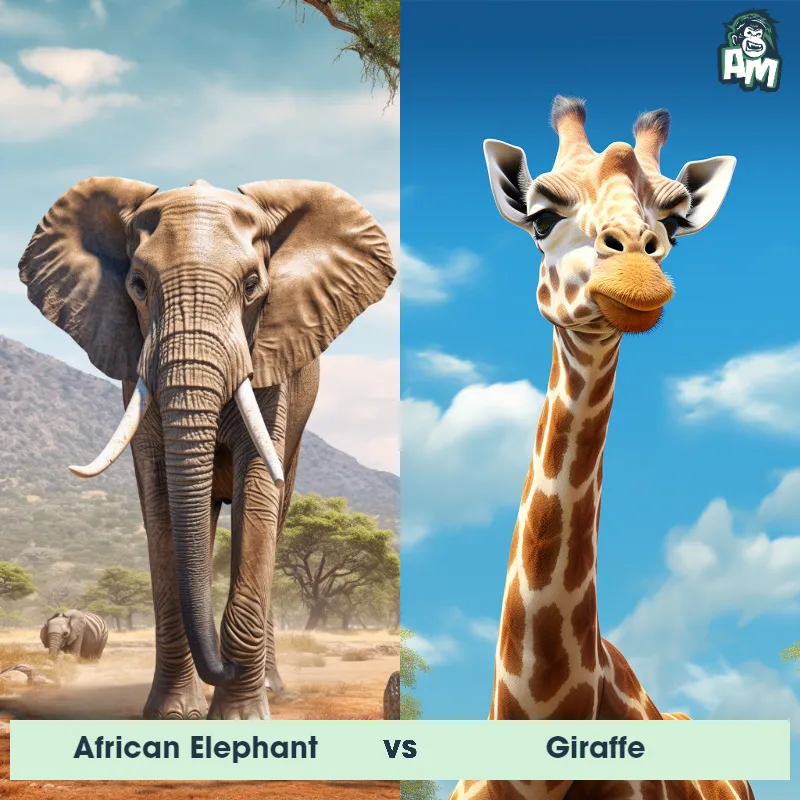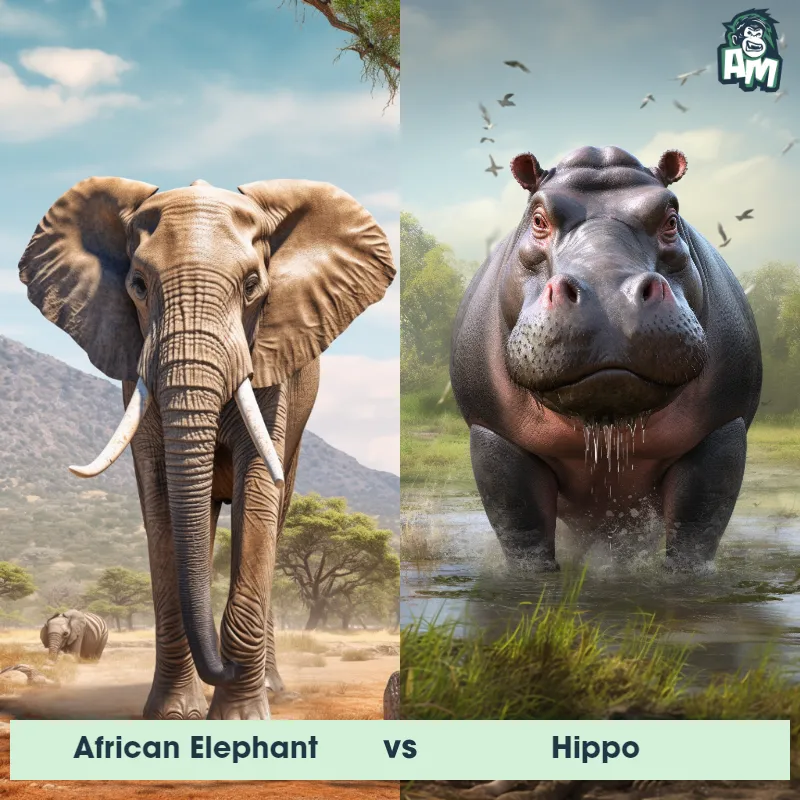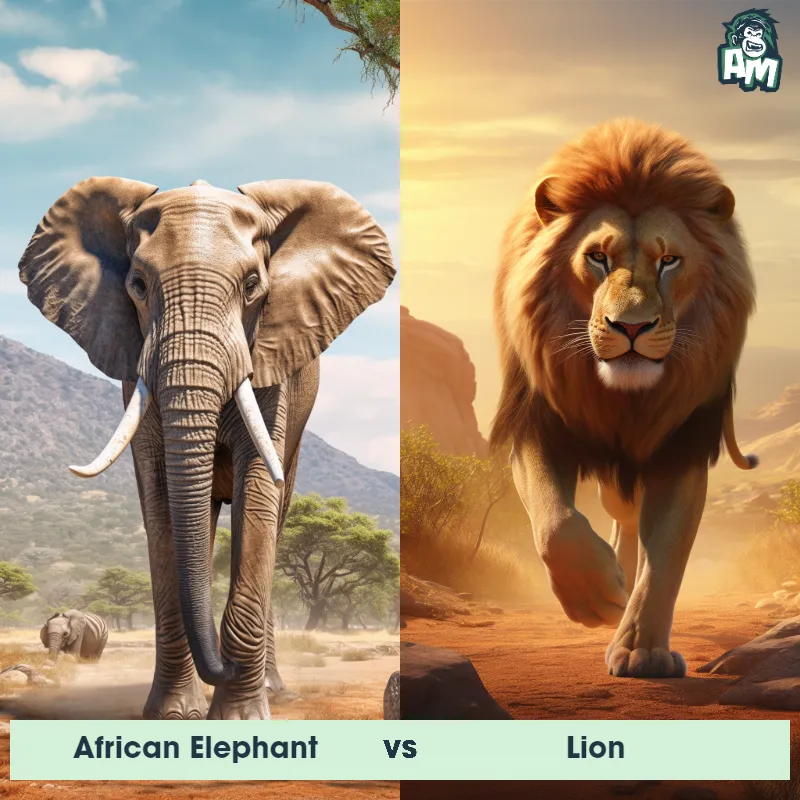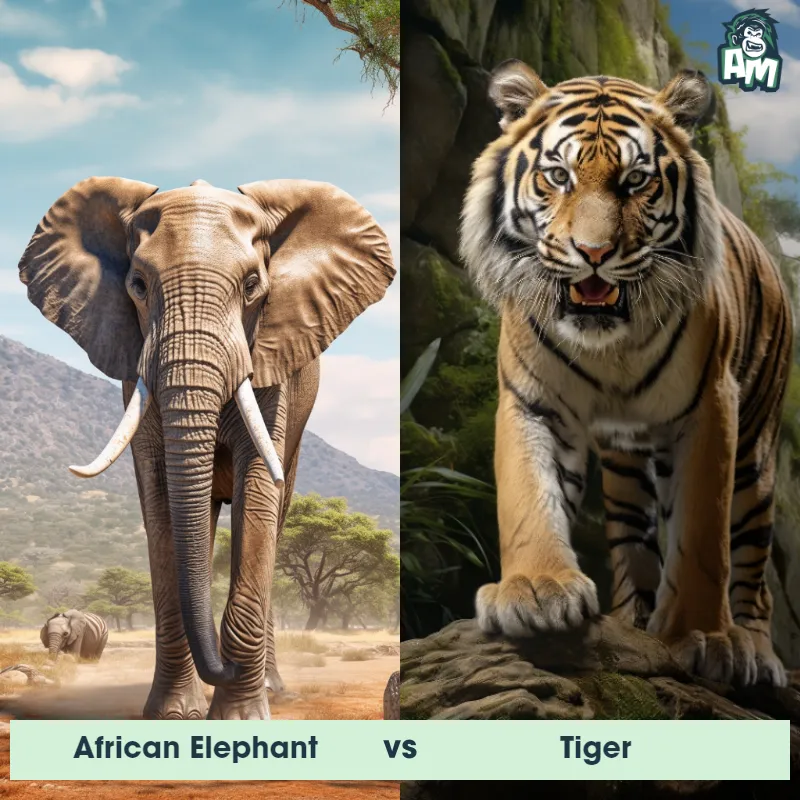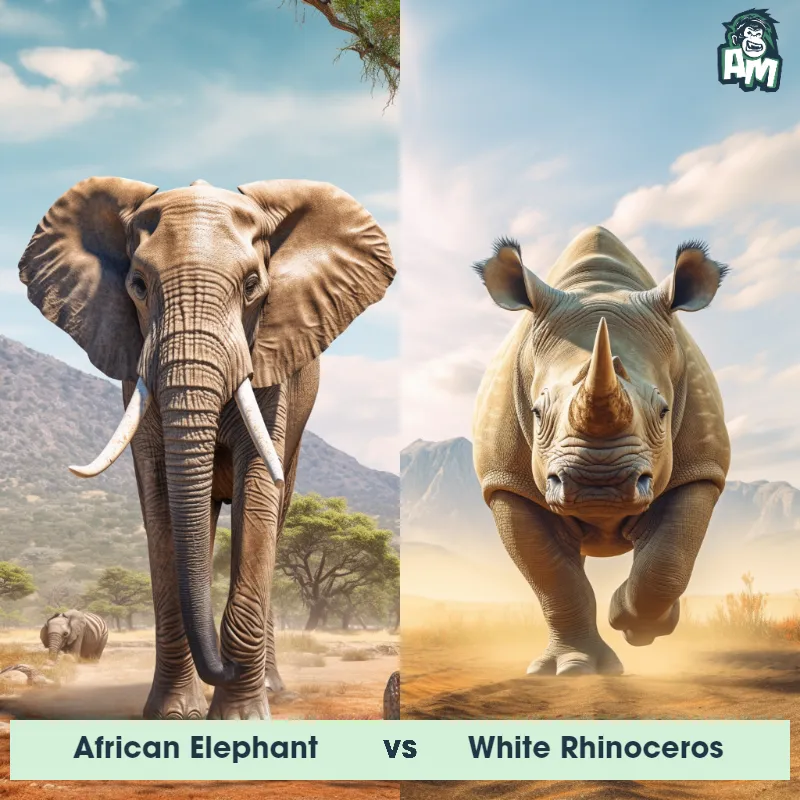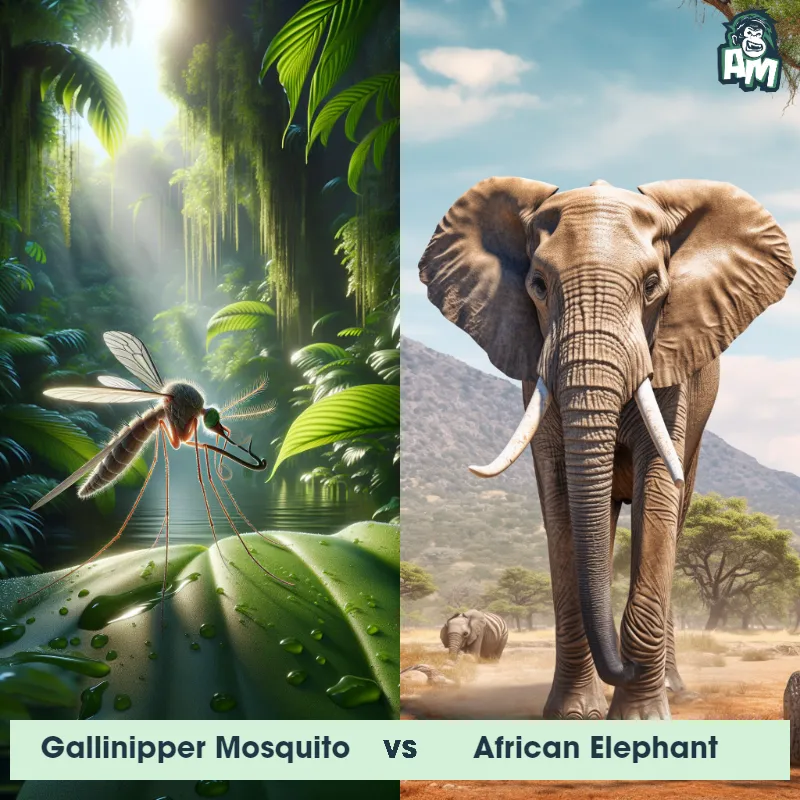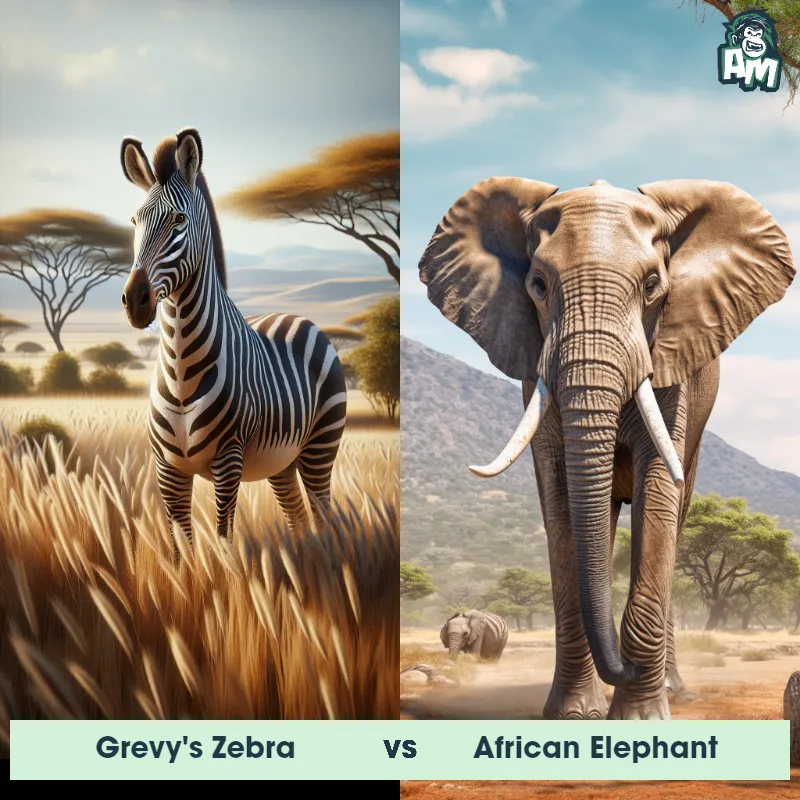The African Elephant
The African Elephant, known scientifically as Loxodonta africana, is the largest land animal on Earth. They are characterized by their enormous size, with males standing around 10 to 13 feet tall at the shoulder and weighing up to 14,000 pounds, while females are slightly smaller. African Elephants have a distinctive trunk that they use for various purposes, including drinking, feeding, and communication. Their large ears, shaped like the African continent, help to keep them cool in the hot African savannahs where they roam. These gentle giants also possess long, curved ivory tusks that grow throughout their lives.
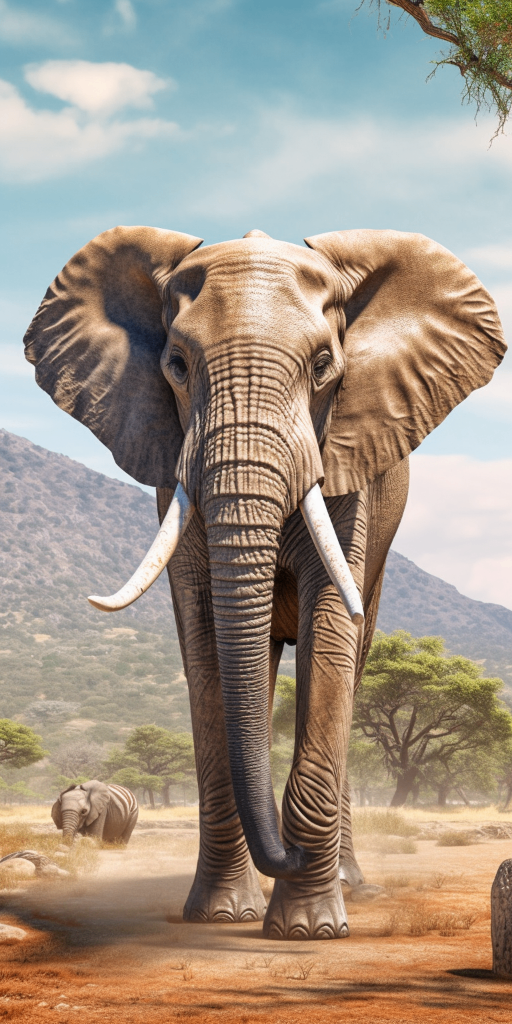
| African Elephant | |
|---|---|
| Size | Up to 13 feet tall at the shoulder (3.96 meters); weight up to 14,000 pounds (6,350 kilograms) |
| Weight | Up to 14,000 pounds (6,350 kilograms) |
| Speed | Speed: 25 mph (40 km/hr) |
| Key Strength | Powerful tusks and trunk for defense and offense |
| Biggest Weakness | Vulnerable to attacks on their legs and underbelly |
| Scientific Name | Loxodonta africana |
| Family | Elephantidae |
| Habitat | Grasslands, savannas, and forests |
| Geography | Sub-Saharan Africa |
| Diet | Herbivore, consuming up to 300 pounds of vegetation in a single day |
| Lifespan | 60 years - 70 years |

The African Elephant
The African Elephant, known scientifically as Loxodonta africana, is the largest land animal on Earth. They are characterized by their enormous size, with males standing around 10 to 13 feet tall at the shoulder and weighing up to 14,000 pounds, while females are slightly smaller. African Elephants have a distinctive trunk that they use for various purposes, including drinking, feeding, and communication. Their large ears, shaped like the African continent, help to keep them cool in the hot African savannahs where they roam. These gentle giants also possess long, curved ivory tusks that grow throughout their lives.
Fun Fact: African Elephants are highly intelligent creatures that demonstrate self-awareness, empathy, and complex social relationships, similar to humans and some other primates!
| African Elephant | |
|---|---|
| Size | Up to 13 feet tall at the shoulder (3.96 meters); weight up to 14,000 pounds (6,350 kilograms) |
| Weight | Up to 14,000 pounds (6,350 kilograms) |
| Speed | Speed: 25 mph (40 km/hr) |
| Key Strength | Powerful tusks and trunk for defense and offense |
| Biggest Weakness | Vulnerable to attacks on their legs and underbelly |
| Scientific Name | Loxodonta africana |
| Family | Elephantidae |
| Habitat | Grasslands, savannas, and forests |
| Geography | Sub-Saharan Africa |
| Diet | Herbivore, consuming up to 300 pounds of vegetation in a single day |
| Lifespan | 60 years - 70 years |
Match Highlights
African Elephant Matchups
We use AI to simulate matchups between the African Elephant and other animals. Our simulation considers size, strength, and natural predatory behaviors to determine the most likely outcome.
African Elephant: Diet, Predators, Aggression, and Defensive Behaviors
What do African Elephants eat?
African Elephants are herbivores and primarily feed on a variety of vegetation, including grasses, leaves, bark, and fruits. They can consume up to 300 pounds of food in a single day.
Do African Elephants have any predators?
African Elephants are large and powerful animals, so they have few natural predators. However, young elephants are vulnerable to being preyed upon by lions and crocodiles.
Are African Elephants aggressive?
African Elephants are generally peaceful animals but can become aggressive when they feel threatened or when protecting their young. Males, especially during musth (a period of heightened aggression and sexual activity), can display aggressive behavior towards both other elephants and humans.
Do African Elephants fight?
African Elephants are known to engage in fights, especially during competition for resources or mating opportunities. These fights can involve physical combat, including pushing, shoving, and tusks clashing.
How do African Elephants defend themselves?
African Elephants have several ways to defend themselves against threats. They use their tusks for protection and to intimidate predators, as well as their trunk for grabbing and throwing objects. They also exhibit defensive behaviors such as charging, trumpeting, and forming defensive circles with their young in the center.
What is the African Elephant's biggest weakness in a fight?
The African Elephant's biggest weakness in a fight is its sensitive trunk. An injury to the trunk can severely hinder an elephant's ability to defend itself, gather food, and communicate with other elephants. As such, predators or rival elephants may target the trunk as a vulnerable spot in a fight.
Fun Fact: Did you know that an African Elephant's ears not only help to regulate their body temperature but also serve as excellent communication tools? By flapping their ears, they can communicate with other members of their herd over long distances.
Fun Fact: African Elephants have a unique way of cooling down in the scorching heat. They take mud or water into their trunks, then spray it over their bodies, creating a protective layer that helps them stay cooler under the sun.




